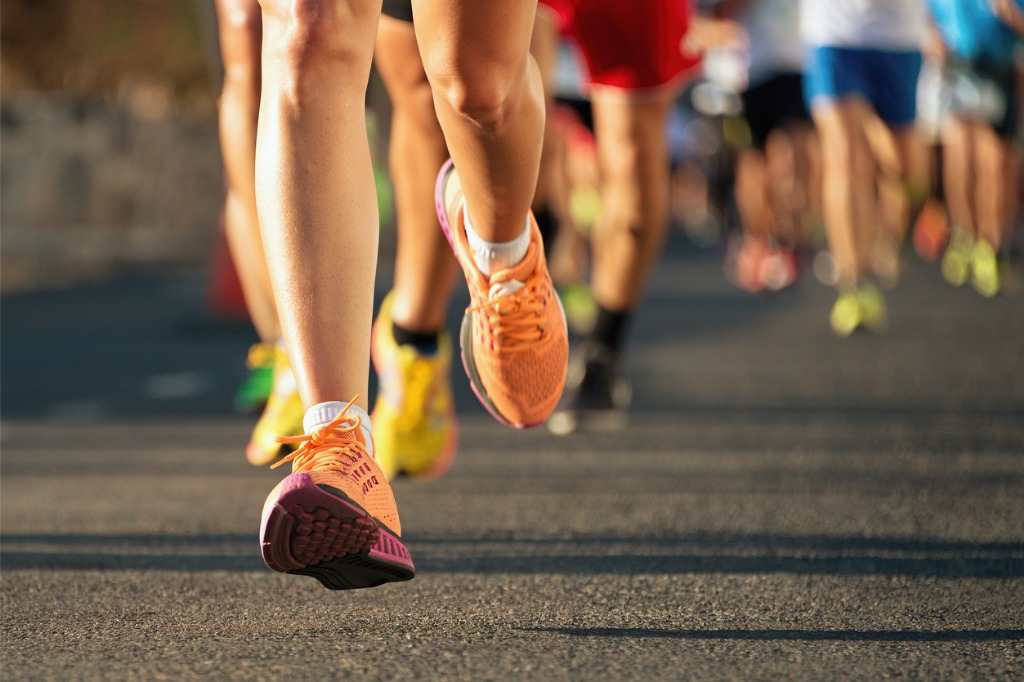
Marathon Recovery: Top Tips for Restoring Your Body After the Big Race
Congratulations on completing your marathon! As you revel in your accomplishment, it’s important to prioritize your recovery to ensure you bounce back stronger than ever. At Alliance Orthopedics, we’re passionate about helping athletes like you achieve their full potential, and that includes guiding you through the recovery process.
The Marathon Recovery Process
A marathon takes a toll on your body, so it’s essential to approach recovery in stages. Let’s break down the process into three phases: immediate, short-term, and long-term recovery.
Immediate Post-race Recovery (0-2 hours)
Importance of cooling down: Cooling down helps your body transition from intense exercise to a state of rest. Start by walking for 5-10 minutes, gradually reducing your pace. This helps prevent blood pooling in your legs and promotes the removal of metabolic waste products from your muscles.
Rehydrating and refueling: Your body has expended a significant amount of energy and lost fluids during the marathon. Replenish by drinking water or an electrolyte-rich sports drink and consuming a small, easily digestible snack containing carbohydrates and protein.
Short-term Recovery (24-48 hours)
Rest and sleep: Your body repairs itself during sleep, so make sure you’re getting at least 8 hours of quality rest. Avoid intense physical activity during this period and consider taking short, gentle walks to promote circulation.
Nutrition and hydration: Continue to focus on hydration and eat balanced meals with a mix of carbohydrates, protein, and healthy fats to provide your body with the essential nutrients it needs to replenish energy stores and build muscle.
Long-term Recovery (1-2 weeks)
Active recovery: Gradually reintroduce more strenuous activities, like swimming or cycling, to restore your body’s strength and flexibility. Listen to your body and avoid pushing yourself too hard.
Massage and physical therapy: Treat yourself to a massage or visit a physical therapist to help reduce muscle tension, improve your range of motion, and ensure your body is recovering optimally.
Cross-training: Engage in low-impact exercises and strength training to maintain overall fitness while avoiding excessive stress on your recovering muscles and joints.
Top Marathon Recovery Tips
Post-race Nutrition and Hydration
Proper post-race nutrition and hydration are vital for promoting recovery. Electrolytes, such as sodium and potassium, are essential for regulating fluid balance and muscle function. Consuming electrolyte-rich drinks or foods like bananas, spinach, or yogurt can help restore your body’s balance after a race. Additionally, carbohydrates replenish glycogen stores, while protein supports muscle repair.
The Role of Sleep in Recovery
Sleep plays a crucial role in recovery, as your body repairs itself during rest. Aim for at least 8 hours of sleep per night and ensure your sleep environment is conducive to rest by keeping your bedroom cool, dark, and quiet.
Establish a consistent bedtime routine, limit screen time before bed, and avoid caffeine or alcohol close to bedtime to improve sleep quality.
Active Recovery and Stretching
Incorporate active recovery and stretching to promote circulation and aid recovery without overexerting yourself. Engage in low-impact activities like walking, swimming, or yoga. Perform dynamic stretches, such as leg swings and arm circles, to warm up your muscles before exercise. Afterward, engage in static stretches, like hamstring stretches and quadriceps stretches, to increase flexibility and reduce muscle tension.
Recognizing and Addressing Common Post-marathon Issues
After a marathon, it’s common to experience delayed onset muscle soreness (DOMS), blisters, chafing, and skin irritation. To combat muscle soreness, stay hydrated, consume anti-inflammatory foods, and use ice or heat therapy as needed. Keep affected areas clean and dry for blisters and chafing, and apply over-the-counter creams or ointments to promote healing.
Identifying Signs of Overtraining or Injury
Be aware of the symptoms of overtraining syndrome, such as persistent fatigue, mood changes, sleep disturbances, and decreased performance. If you suspect overtraining, consult a medical professional and consider adjusting your training plan. Seek medical advice if you experience severe or persistent pain, swelling, or loss of function that does not improve with rest and at-home care.
Alliance Orthopedics: Your Partner in Marathon Recovery
At Alliance Orthopedics, our team of highly trained and experienced professionals is dedicated to helping you achieve optimal recovery after your marathon. Our multidisciplinary approach, encompassing orthopedic surgeons, sports medicine providers, chiropractors, physical therapists, and occupational therapists, ensures that we can address your unique needs and create a personalized recovery plan tailored to your specific requirements.
Whether you need assistance with injury rehabilitation, strength training, or preventative care, we are here to support you throughout your recovery journey.
Take the first step towards a faster, more effective recovery by requesting an appointment with one of our specialists today. Together, we’ll help you get back on track and prepare for your next race with confidence.